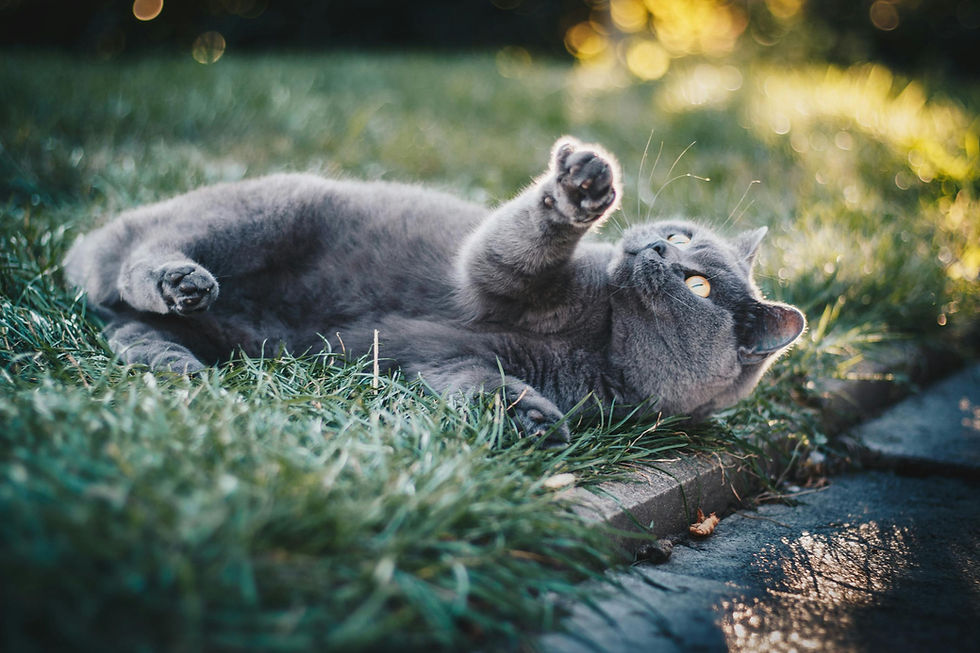Can Cats Drink Milk? What To Know
- Snappy Tom Pet Supply
- Jan 9, 2023
- 2 min read

The image of a cat joyfully lapping up a saucer of milk has been instilled in our minds. But can cats drink milk? And even if they can, is it healthy for them?
While cow’s milk has some nutritional benefits, such as calcium and protein, it can also be difficult for cats to digest, leading to upset stomachs and other GI issues.
Before you pour your feline companion a saucer of warm milk, here's what you should know.
Can kittens drink milk?
Young kittens drink milk from their mothers, but mother cats typically wean them by the time they reach ten weeks old.
As they age, most kittens lose the ability to digest the sugars found in milk because their diet evolves to include solid foods. This is totally normal (it happens in humans too, which is why so many humans are lactose-intolerant).
Even if your kitten isn't lactose intolerant, cow's milk doesn't necessarily have the proper nutrients to make up for a mother's milk. If you're looking for options to supplement or replace a mother cat's milk, a cat milk substitute product that is specifically formulated for kittens would be a more nutritious alternative.
Is milk bad for adult cats?
Many adult cats are lactose-intolerant. While your cat may be curious to try drinking milk, there's a good chance it will lead to an upset stomach. If you're looking for a meal supplement or a special treat for your adult cat, there are better options than giving milk.
A tasty wet food or a meal topper developed with a cat's nutritional needs in mind would be a much healthier choice! We recommend Snappy Tom Naturals because they are made with real fish and chicken and are high in protein to conform to a cat's natural diet. They come in several flavors that your cat is sure to love!
That said, for cats that can digest lactose, cow's milk is just fine in moderation.
What are the symptoms of lactose intolerance in cats?
Cats that can't digest milk may exhibit the following symptoms:
· Gas
· Bloating
· Vomiting
· Loose stool or diarrhea
· Abdominal pain
If you notice any of these symptoms after your cat drinks milk, monitor them closely and ensure they stay hydrated. Vomiting and diarrhea can lead to dehydration when prolonged.
The bottom line
Once kittens are fully weaned, milk is no longer essential for their diet. The essential nutrients they need can be found in cat food. While your cat may be compelled to drink cow's milk (and coax you to share your cereal bowl), many cats struggle to digest lactose. Digestive problems aside, milk is typically high in fat and can lead to weight gain if your cat drinks too much of it.
Ultimately, there are better treats out there for your feline friend that are more in line with their natural diet. However, if they can tolerate it, there's no harm in letting your cat drink milk in moderation.







Comments